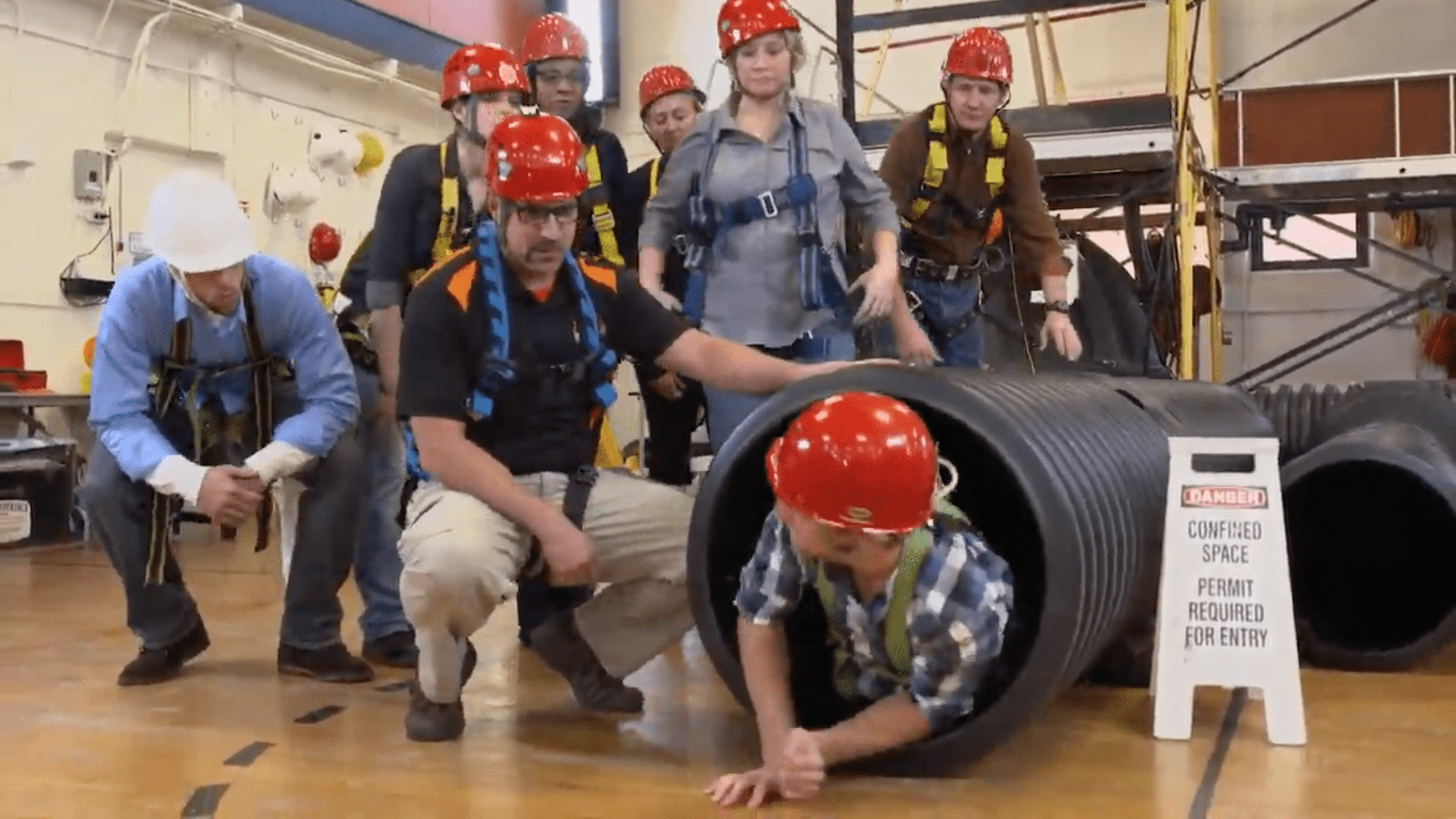Yes, appropriate training is extremely important to working safely in confined spaces. Hands-on training should be an essential part of the confined space training.
- Recognition and identification of potential hazards associated with the confined spaces that will be entered.
- Evaluation and control procedures for the identified or potential hazards.
- All equipment such as ventilation equipment (blowers), harnesses and air quality monitors (e.g., Oxygen/combustible meters) will be used while in the confined space.
- All personal protective equipment (e.g., respirators) that the worker will be using while in the confined space.
- All procedures for entering the confined space as outlined in the employer’s Confined Space Hazard Assessment Programme.
- Procedures to follow in the event of a situation developing that could present additional risk to the worker or in emergency.
- The specific work to be done while in the confined space.
Workers with emergency rescue responsibilities will need additional specialized training. All confined space training should include some hands-on training with the safety equipment including the personal protective equipment and safety harnesses. Rescue procedures should be practiced frequently so there is a high level of proficiency. Employers should keep records of all confined spaces training including refresher courses.
Checklist
YES | NO | TRAINING |
|---|---|---|
Have you been trained in the proper use of a respirator? | ||
Have you received first aid/CPR training? | ||
Have you been trained in confined space entry and do you know what to look for? |

Post a Comment